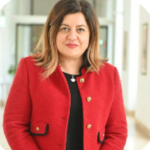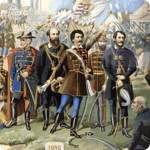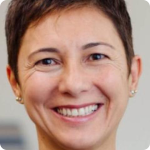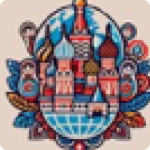Past Events

- Molly McSweeney
- Global HubAttention: Undergraduate students! Are you looking to gain experience that will help prepare you for a globally-connected job market? Stop by Drop-In Hours to learn more about getting the Global Distinction added to your academic transcript, rec
Attention: Undergraduate students! Are you looking to gain experience that will help prepare you for a globally-connected job market? Stop by Drop-In Hours to learn more about getting the Global Distinction added to your academic transcript, receiving special recognition at graduation, and standing out to prospective employers!

- Zharia White
- Global Hub
Are you an international student at Pitt looking to connect, or interested in connecting with international students? Stop by the Nook in the Global Hub on Tuesdays, between 2 and 4 pm during Spring semester, to chat with OIS Outreach Coordinator Zharia White from the Office of International Services!

- Nina Sajic, Bosnia and Herzegovina
- Global Hub
Dr. Sajić served as the ambassador of Bosnia and Herzegovina to France, UNESCO, Algeria, Monaco, Andorra and Romania. She was also a foreign policy advisor in the Presidency of Bosnia and Herzegovina. She will be at Pitt to discuss her diplomatic experiences with students and the wider community. Light lunch will be provided.

- Frick Fine Arts Building, Auditorium
Join the Nationality Rooms and Intercultural Exchange Programs and the Hungarian Room Committee, along with the Center for Russian, East European and Eurasian Studies, the European Studies Center, and the Hungarian Program of Less Commonly Taught Languages in the Department of Linguistics to commemorate the 1848 Hungarian Revolution. Daniel Mikecz, PhD, Fulbright Visiting Professor, at the University of Pittsburgh will talk about the importance of the 1848 revolution in Hungary’s history and the influence of the revolutionary leader, Lajos Kossuth's trip in the United States and the Hungarian '48-ers who joined the Union forces in the Civil War in the United States. A reading of the the Nemzeti dal or "National Song", the patriotic poem written by Sándor Petőfi, will also be shared. A reception will be held following the program portion in the Frick Fine Arts Building Cloister. The event is free and open to the public.

- TBA and via Zoom
This annual national competition provides US school and college students the opportunity to demonstrate their Russian language knowledge while meeting with other students of Russian and conversing with native Russian speakers. Students will receive recognition for their demonstrated language proficiency, improve their chances of getting international and study abroad scholarships, and enhance their professional resume.
Event date: Saturday, March 15, 2025
Location: TBA
Registration Deadline: January 25, 2025
For more information and to register, please visit: https://www.ucis.pitt.edu/creees/events/olympiada

- Natalia Mamonova, Susanne Wengle
- 4130 Posvar Hall
The UN’s Intergovernmental Panel on Climate Change recently predicted that global average temperatures will rise 1.5 degrees Celsius above preindustrial levels in the mid-2030s. Over the last decades, a global network of scholars, policy makers, activists, and others have organized to offer ways to mitigate and even reverse the effects of climate change. What offramps can these solutions and movements offer our collective humanity? “Eurasian Environments” seeks to provide some reflections to mark the UN’s 2024 Climate Change Conference in Baku, Azerbaijan. This series will examine social justice and sustainability efforts to address climate change by putting scholars of Eurasia in conversation with their peers specializing on Africa, the Americas, Asia, and Europe. The series will comprise six events that will illuminate the challenges and possible solutions to climate change in Eurasia in regional and global contexts. This event is part of the Eurasian Environments: Climate Justice and Sustainability in Global Context series.

- 4130 Posvar Hall
This event will in theme with International Women's day. We will be inviting speakers specifically in International Development sector to give career advice.
Sike, Deborah Nwachinemere is inviting you to a scheduled Zoom meeting.
Topic: Meeting for Women in International Careers
Time: Mar 14, 2025 04:00 PM Eastern Time (US and Canada)
Join Zoom Meeting
https://pitt.zoom.us/j/96432914892
Meeting ID: 964 3291 4892

- Molly McSweeney
- Global Hub
Attention: Undergraduate students! Are you looking to gain experience that will help prepare you for a globally-connected job market? Stop by Drop-In Hours to learn more about getting the Global Distinction added to your academic transcript, receiving special recognition at graduation, and standing out to prospective employers!

- Danica R. Starks
- 104 David Lawrence Hall
Join Danica R. Starks to explore how private sector investment in digital infrastructure has supported economic development and democratization in Kyrgyztan, particularly in rural areas of this country. Her case study will provide valuable insights into the intersection of technology, governance, and regional resilience in Central Asia. Danica R. Starks is Adjunct Professor at Syracuse University's Maxwell School of Citizenship and Public Affairs while she also serves in the roles of Senior U.S. Commercial Liaison and Advisor to the U.S. Executive Director at the World Bank and Head of the Commerce Department’s Multilateral Development Bank Group. Danica has over twenty years of experience in international economic policy, commercial diplomacy, trade, and national security, with a specialization in Europe and Eurasia. Most recently Danica served as the Director of the Policy Team at the U.S. Department of Commerce in the Office of Russia, Ukraine & Eurasia. She has also previously done assignments as a Senior Advisor at the U.S. Helsinki Commission and to the Assistant Secretary of Commerce for Global Markets.

- Various
- TBD

- Muge Finkel
- Posvar Hall 4303
Join the ValEUs Network and the University of Pittsburgh for a Policy Writing Workshop Series focusing on key themes: De/Migration; Decolonization; Europe Viewed from the South; Populism and Euroskepticism; Nation-building/state -interventionism; Critiquing or Affirming the EU/Values versus Realpolitik. Designed for anyone in the ValEUs community with an interest in policy writing, the series encourages faculty and students to draft policy briefs for publication.

- Molly McSweeney
- Global Hub
Attention: Undergraduate students! Are you looking to gain experience that will help prepare you for a globally-connected job market? Stop by Drop-In Hours to learn more about getting the Global Distinction added to your academic transcript, receiving special recognition at graduation, and standing out to prospective employers!

- Zharia White
- Global Hub
Are you an international student at Pitt looking to connect, or interested in connecting with international students? Stop by the Nook in the Global Hub on Tuesdays, between 2 and 4 pm during Spring semester, to chat with OIS Outreach Coordinator Zharia White from the Office of International Services!

- Ryan Smith
- Frick Fine Arts Auditorium
February 24, 2025 marks the third anniversary of Russia's full-scale invasion of Ukraine. Join us for the screening of Soldiers of Song (dir. Ryan Smith). Officially selected at the Tribeca and Warsaw film festivals, this independent documentary film features Ukraine's most iconic musicians as they inspire unity and courage amidst the chaos of war. Matthew Hickey (President, GOSECA), Dean Adriana Helbig (Department of Music), and director Ryan Smith will discuss.

- Elizaveta Volkovskaia
- Global Hub
- ‹ previous
- 3 of 46
- next ›
